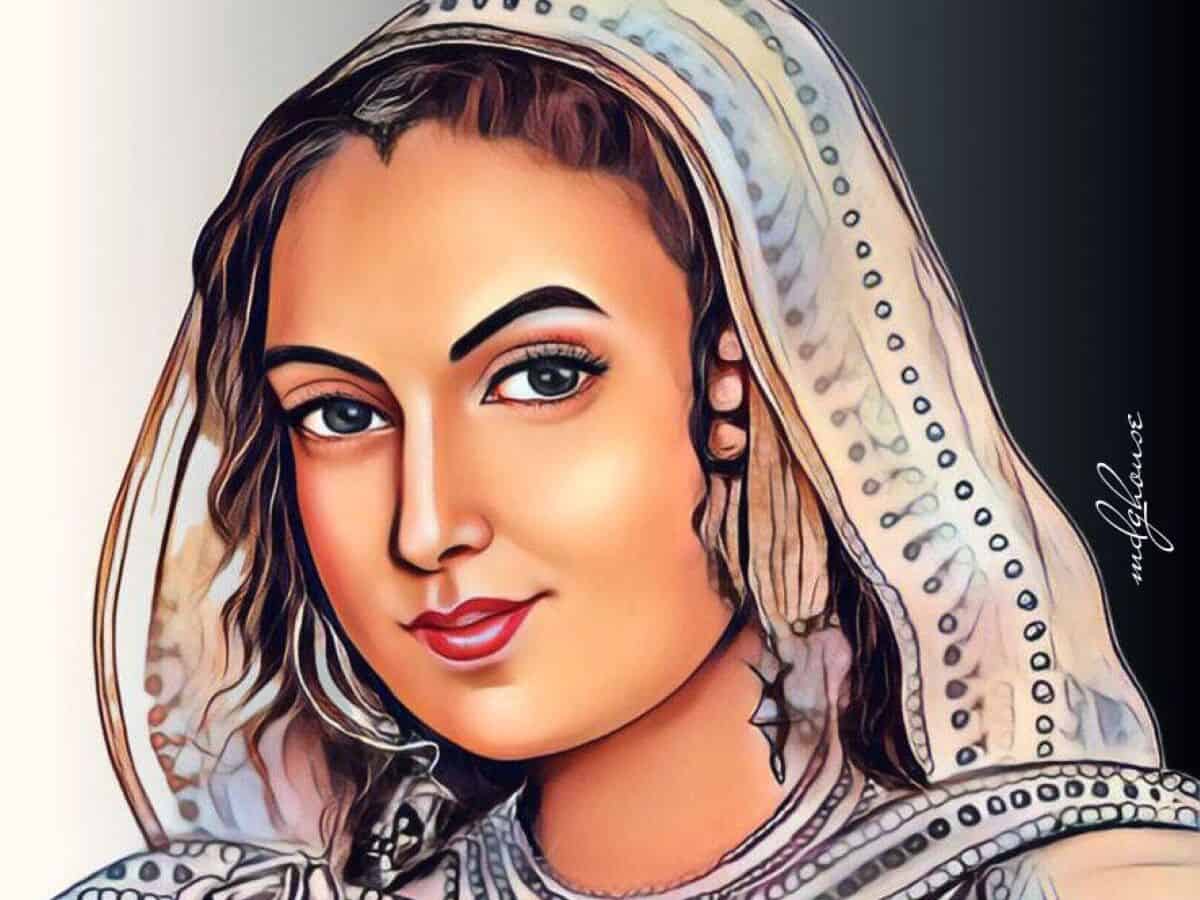
Begum Hazrat Mahal was born in 1830 in Faizabad of Uttar Pradesh. Her actual name was Muhammadi Khanum. Her father is Gulam Hussain of Faizabad. At a tender age itself, she showed good talent in literature. She was married to Wajid Ali Shah, the Nawab of Awadh. They were blessed with a son Mirza Birjis Khadir Bahadur.
On 13 February 1856, the British troops imprisoned Wajid Ali Shah. They sent him to Calcutta on March 13 and occupied Awadh illegitimately. This irked the people and native rulers. They revolted against the British under the leadership of Begum Hazrat Mahal. The native rulers and people met at the Chavani area of Lucknow, the capital of Awadh on May 31, 1857, and declared independence. They taught a lesson to the British troops and wiped out their power in Lucknow.
Later, Begum Hazrat Mahal declared her son Birjis Khadir as the Nawab of Awadh on July 7, 1857. As the King’s mother, she gathered 1,80,000 troops and renovated the Lucknow fort spending a huge amount of money. She established a high-level committee for the good governance of the state in which she appointed members like Mummu Khan, Maharaja Balakrishna, Babu Purna Chand, Munshi Ghulam Hazrat, Mohammad Ibrahim Khan, Raja Man Singh, Raja Desibaksh Singh, Raja Beni Prasad, and others. Sharaf-ud-Doula was appointed as Chief Minister and Raja Jail Lal Sing as Collector.
Hazarat Mahal ruled the state on behalf of her son for about ten months and challenged the British force by inspiring patriotism among the people and fellow native rulers. She issued a historic statement on December 31, 1858, challenging the proclamation issued by Queen Victoria on November 1, 1858. But, when Delhi, the prime center for the First War of Independence was captured, the British troops surrounded and attacked Lucknow in March 1859.
There was a fierce battle between the Company troops and the Begum troops. When defeat became inevitable, Begum Hazrat Mahal retreated to the Nepal forests along with co-revolutionary leaders like Nana Sahib Peshwa and others.
The British rulers offered her a huge amount of money and luxurious facilities in order to bring her back to Lucknow. But, Begum denied them and made it clear that nothing else was acceptable to her except the Independent Awadh state. Begum Hazarath Mahal was struggling for the independence of her state till her last breath. She passed away in Kathmandu of Nepal on April 7, 1879.
In 1984 Government of India released a postal stamp in her honour.
